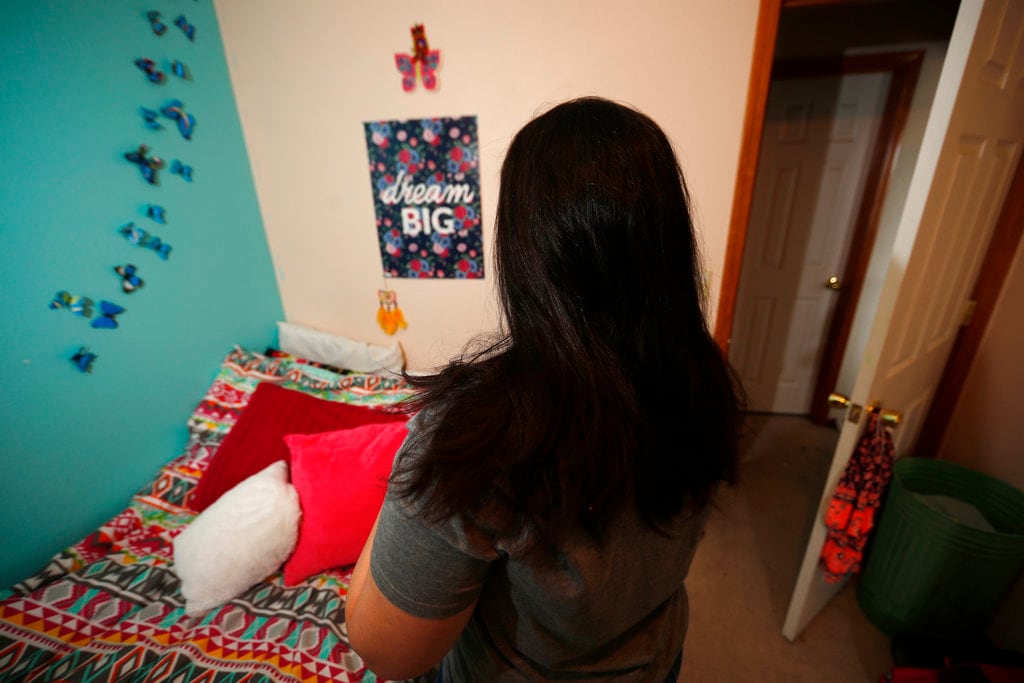For the second time this year, an independent federal review has faulted the U.S. Department of Defense for how it has responded when children on military bases sexually assault each other.
A report released Wednesday by the Pentagon’s Office of Inspector General said leaders have downplayed incidents, not cooperated with civilian law enforcement and until recently failed to provide support services to victims.
More than 1 million school-age children live in military families — many on U.S. bases where, as in broader society, kids and teens sometimes sexually assault their peers. An Associated Press investigation found that those incidents were typically lost in a legal and bureaucratic netherworld, where authorities failed to aid victims and offenders rarely faced consequences beyond barring them from base. The Pentagon didn’t know the scope of a problem it did little to track.
RELATED

Congress responded by requiring a series of reforms starting in fall 2018. To build on the initial reforms, the Defense Department should create military-wide policies and limit the discretion of administrators in Pentagon-funded schools that educate students on installations worldwide, the inspector general’s office recommended.
The Senate Armed Services Committee also asked for the inspector general’s review. It was external scrutiny that the Pentagon did not want.
Like a February assessment by the Government Accountability Office, the Pentagon’s watchdog reported that authorities minimized incidents at nearly every stage. One result was that cases rarely made it to civilian courts, which can provide justice both for victims and offenders.
“Civilian legal authorities and installation commanders generally did not hold juvenile offenders accountable,” the inspector general’s report said.
RELATED

Military authorities have started making some changes, with a focus in the Army and elsewhere on revising written policies for how to handle and track reports. The Family Advocacy Program, the military’s equivalent of social services, says it now offers counseling for victims in these kinds of assaults.
Administrators at base schools, which educate more than 70,000 kids, also have revised policies. The report found school staff often had mischaracterized sexual assaults internally and rarely told outside authorities about cases.
The inspector general’s office identified 600 misconduct cases between 2015 and 2017 that met the Pentagon school system’s criteria for a “serious incident” report. Yet campus administrators failed to submit reports on 522 cases to headquarters, according to the inspector general’s office. Administrators were even less likely to tell law enforcement or base commanders, who weren’t notified in 593 of the 600 cases.
Unlike AP’s investigation, that count included incidents beyond sexual assault. In one unreported case, a student threatened a child by saying, “I’ll bring a knife to school tomorrow and cut off your head.”
A top administrator for the Department of Defense Education Activity, known as DoDEA, told the inspector general’s office that principals had “professional discretion” to decide what to report. School staff were quoted as saying policies “did not contain sufficient detail” to know when to do so, while others said “they were not aware” of the requirements.
The inspector general’s office acknowledged improvements DoDEA has made in its policies to ensure sexual assaults are flagged, but recommended further changes to limit school officials' discretion and clarify when law enforcement is alerted.
“Military kids shouldn’t be less safe than civilian kids, and that’s how the DoD school system appears to operate,” said Sen. Joni Ernst, R-Iowa, an Armed Services Committee member. “I want to make sure those who have failed to report sexual misconduct against children be held responsible.”
Many other assaults happened outside school grounds. In those investigations, base law enforcement authorities did not reliably tell their civilian counterparts, who have legal jurisdiction over civilian family members on bases.
In half of the 126 criminal investigations the report sampled, military law enforcement authorities apparently failed to notify the FBI or US Department of Justice, as they are required to do under military regulations. The reason criminal investigators and military lawyers, called judge advocates, gave for not reporting: The FBI and DOJ “generally did not provide them investigative or prosecutorial assistance.”
AP’s investigation found that civilian prosecutors rarely accepted cases, even involving teenagers accused of rape.
“It is clear from this report that the Pentagon’s response to children suffering abuse fell far too short in many cases,” said Sen. John Cornyn, R-Texas, who pushed the 2018 reforms. “While the DoD has committed to implementing the recommended actions, our military families deserve a clear and specific plan to ensure juvenile perpetrators face consequences.”
The report recommended any such plan include a unified policy that ensured each of the armed services handles cases the same. The Under Secretary of Defense for Personnel and Readiness agreed with that suggestion — but did not explain what specifically the office would do to implement it.
The inspector general’s office requested further information—as well as follow-ups from DoDEA, the Army and the Navy — by Oct. 5.
Pritchard reported from Los Angeles.





